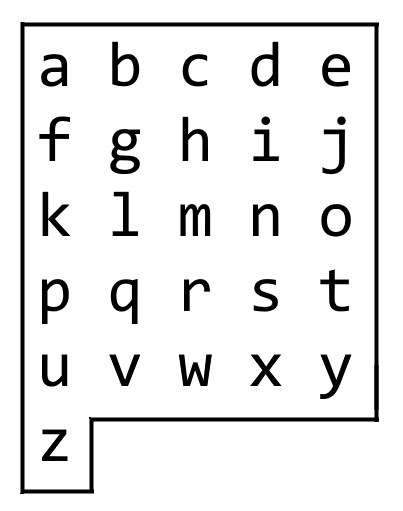14. Alphabet Board Path
On an alphabet board, we start at position (0, 0), corresponding to character board[0][0].
Here, board = ["abcde", "fghij", "klmno", "pqrst", "uvwxy", "z"], as shown in the diagram below.

We may make the following moves:
'U'moves our position up one row, if the position exists on the board;'D'moves our position down one row, if the position exists on the board;'L'moves our position left one column, if the position exists on the board;'R'moves our position right one column, if the position exists on the board;'!'adds the characterboard[r][c]at our current position(r, c)to the answer.
(Here, the only positions that exist on the board are positions with letters on them.)
Return a sequence of moves that makes our answer equal to target in the minimum number of moves. You may return any path that does so.
Example 1:
Example 2:
Solution:
Approach: Find the position and direction and move Edge case:- Movement to 'z'
Last updated